“Sephardi Gaza: Unlearning Jewish History”
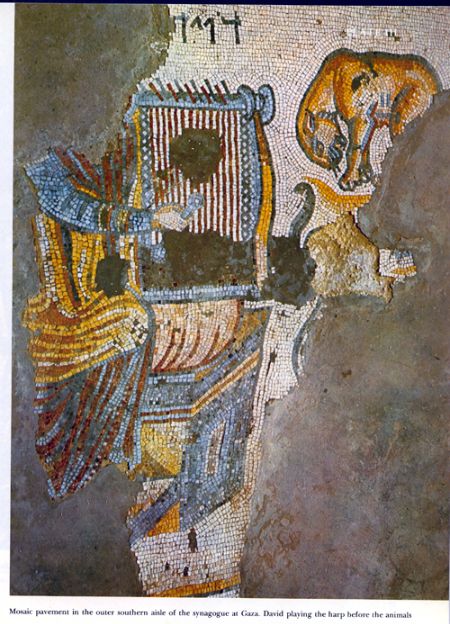
In Memory of Ruth Pearl née Rejwan, A”H, a Baghdadi Jew, Farhud survivor, oleh, immigrant to America, advocate for recognition for herself and fellow Sephardic Jewish refugees from the Middle East and North Africa, and a “seeker of justice” for her slain son, Wall Street Journal reporter Daniel Pearl, HY”D, including by helping build a “coalition of the decent.”
Click here to dedicate a future issue in honor or memory of a loved one.

The Monthly Sage ◊ Feature ◊ Sephardi Gifts ◊ Upcoming Events ◊ Donate ◊ Archive
~~~~~~~
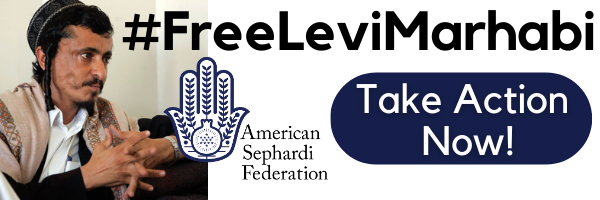
During Passover, Iranian regime-backed Houthis expelled almost all of Yemen’s last Jews. They continue to illegally imprison Levi Salem Musa Marhabi. Don’t turn away. Don’t close your eyes. Don’t let another group of Jews become forgotten refugees. Join the ASF’s campaign to #FreeLeviMarhabi!
~~~~~~~
Sephardi Ideas Monthly is a continuing series of essays and interviews from the rich, multi-dimensional world of Sephardi thought and culture that is delivered to your inbox every month.
This month’s issue of Sephardi Ideas Monthly for July/August 2021 ushers in a series of articles exploring different dimensions of Sephardi connections to the Land of Israel. We begin the series by shining the spotlight on Jewish history in Gaza. Now, some of our readers might be surprised to know that there is, in fact, Gazan Jewish history, so this month we offer Nadav Shragai’s fascinating introductory essay, “Gaza, like you never knew it.”
Nadav Shragai was a correspondent for Haaretz from 1983-2009, covering national security and religious affairs, before joining the staff of Israel HaYom. He enjoys respect across Israel’s fractured political divide, with Haaretz publisher Amos Shocken offering after Shragai’s 2009 departure: “Nadav is a journalist with clear opinions; I do not agree with most of them, but I always found them interesting. His opinions never influenced his news reporting, which was always professional.”
“Gaza, like you never knew it”
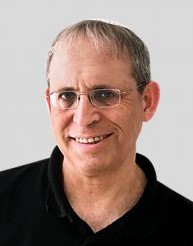
(Photo courtesy of Israel HaYom)
Shragai begins his survey of Jewish life in Gaza with a remarkable piece of recent history that doesn’t exactly line up with contemporary political frameworks:
Who would believe that only 110 years ago, then Chief Rabbi of Gaza Nissim Binyamin Ohana, and then mufti of Gaza Sheikh Abdullah al-Alami, co-authored a book?
‘In Gaza,’ Ohana wrote in one of his essays, ‘I wrote a book, Know What the Heretic Will Say in Response with the mufti of Gaza, Sheikh Abdullah, who would visit my home twice a week because he wanted to know the exact meaning of the verses copied from the Old Testament into the New Testament by the apostles.’
But as Shragai tells the story, that’s part of Gazan Jewish history: full of surprises. Such as this:
On Muslim holidays, Avraham Elkayam would take part in horseback and wrestling competitions.
‘We purposely lost to the Bedouin, lest they be offended,’ the Jews of Gaza would later recall.
And this:
In 1914, Zvi Hirschfeld, the founder of the Ruhama moshava in the western Negev, wrote in his diary that ‘On Tu BiShvat the children from the Gaza school had an excursion on our land and planted trees and ate the fruits of the land and celebrated the New Year for trees in a befitting manner, with songs and poetry.’
Unfortunately, 20th century history put an end to such meetings, as extremist forces determined the direction of Arab-Muslim politics and dictated a zero-sum response to Zionism.
But Gazan Jewish history doesn’t begin in the 20th century. It extends far back into the Jewish past, as Shragai recounts:
[Gaza] was conquered by Jonathan Hasmonean in 145 BCE; it is mentioned in the Jerusalem Talmud in the fourth century CE; Nathan of Gaza… is the one who, on the eve of Shavuot 1660, declared Zvi ‘the savior of Israel.’ He did so in the synagogue of Gaza. The famous Cairo Geniza also fills in some details about the Jewish community in Gaza through the generations. There is also the rabbi and poet Yisrael Najara, possibly the most famous of the Gazan Jews.
Upcoming issues of Sephardi Ideas Monthly will explore the life and career of the extraordinary rabbi and Ottoman-Sephardic Jewish poet, R’ Yisrael Najara. But we’re happy to get the ball rolling with Nadav Shragai’s intriguing article, full of wonderful surprises, “Gaza, like you never knew it.”
Feature:

~~~~~~~
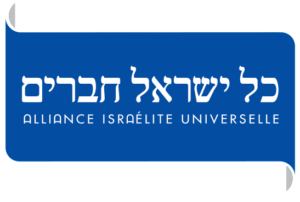
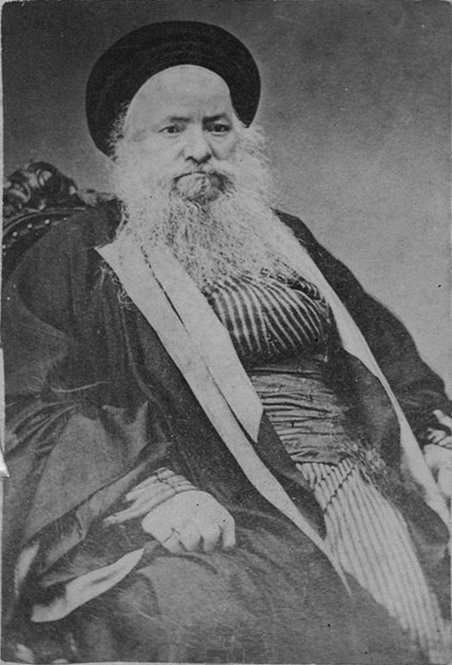
The sage for the month of July is Hakham Moses Pardo (1810-1888).
braham and Binyan Shlomo yeshivot with his friend and colleague, the Rishon LeZion, Hackam Shaul Elyashar (previously featured as The Monthly Sage in Jan., 2021).
Born in Jerusalem in 1810, young Moses Pardo learned at the Hessed L’Abraham and Binyan Shlomo yeshivot with his friend and colleague, the Rishon LeZion, Hackam Shaul Elyashar (previously featured as The Monthly Sage in Jan., 2021).
Hakham Moses Pardo lived in the Land of Israel until the age of sixty, including as Av Beit Din (President of the Rabbinic Court) for the Sephardic community. In 1870, however, he travelled to North Africa in order to raise funds for local houses of study in the Land of Israel.
Hakham Moses’ trip across North Africa became permanent when he was asked to replace the recently deceased Hakham Nathan Amram as Rabbi of Alexandria, Egypt. He accepted the position, remaining in the role for seventeen years. He passed away and was buried in Alexandria in 1888.
Hakham Moses Pardo’s writings are primarily legal responsa: Tseddek U’Mishpat, Hora’ah D’Beit Din, and Shemo Moshe – a book of responsa. He also edited Hasdei David and wrote a response to Hackam Eliyahu Ben Amozegh’s Em LaMikra.
In the following legal response from Shemo Moshe, Hakham Pardo rules that it’s permissible for a procession with a Torah scroll on the Shabuot Festival to be accompanied by musical instruments played by non-Jews:
I received a question from a person seeking to dedicate a Torah scroll to the holy Eliyahu community in a procession on the first day of Shavuot. The local custom is to hold a procession with musical instruments played by non-Jews, for the Jews do not know if it is permissible to ask a non-Jew to prepare musical instruments on the eve of the Festival so that musicians may lead the Torah scroll with music on the following day. Should we be concerned about whether they might repair the musical instruments during the Festival?
Concerning our issue, it is certainly permitted. I gave my direct consent, all the more so because this has been the local custom in the past, as several proper individuals have testified before me, and rabbis preceding me had done so on several occasions.
~~~~~~~
Upcoming Events or Opportunities:
| Jewish Heritage Alliance, in collaboration with the American Sephardi Federation and other co-hosting Partners, presents:Sefarad: The Untold Story That Changed the World (Part 2) A 3-part series exploring History, Memory, and Legacy Sunday, 22 August at 1:00PM EDT Sign-up Now! (Free Admission, registration required)  “The Sefardic experience is more than merely recounting a history; this is a far-reaching segment of Jewish and world history spanning centuries with profound consequences still unfolding in present day. Yet despite its historic importance, many in the Jewish and Latino communities have yet to learn the relevance and impact of these events. Part II / Aug 22: Challenging Religious Authority: The Birth of Heresy and the Inquisition. The Inquisition is infamous in popular culture for the severity of its tortures and persecution of heretics. In Spain and Portugal, this powerful tribunal sanctioned by the Catholic Church became obsessed with the phenomenon of “Judaizing” (Jews who were forcibly converted to Christianity but who secretly tried to keep the Laws of Moses). This webinar will examine the Iberian Inquisition and its relentless pursuit of Crypto-Judaism for three and a half centuries on five continents, reshaping the world of Sefarad. Welcome Remarks: Jason Guberman is a social entrepreneur who specializes in building broad coalitions and melding intellectual and technical innovation. Jason is the American Sephardi Federation’s Executive Director, founding Executive Director of Digital Heritage Mapping, and coordinator of DHM’s flagship initiative, the Diarna Geo-Museum of North African and Middle Eastern Jewish Life, which was a 2017 cover story in Newsweek and profiled in the June 2020 issue of the Smithsonian Magazine. Join Dr. Isaac Amon, JHA’s Director of Research & Project Development on a fascinating journey spanning time and space to the origins, experiences, and legacy of Sefarad, the Jews of the Iberian Peninsula, today’s Spain and Portugal. Musical Guest: Al’Fado is a fresh Israeli-Portuguese ensemble based in the rich music scene of Lisbon. It focuses on music originating from the Iberian Peninsula, through the cultures of the medieval-times Hebrew communities and the chant in an ancient dialect of Spanish mixed with Portuguese and Hebrew called Ladino. The program will feature their musical video Rikordus di mi Nona that was written by the late Flory Jagoda, of blessed memory, a Ladino legend that survived the two world wars and settled in America where she became a world-renowned figure of the Sephardic culture. Al’Fado’s lead singer, Gal, had the opportunity to meet her and obtained her permission to recreate the song which describes her childhood memories in the former Yugoslavia.” |
| As part of the #FreeLeviMahrabi campaign, Combat Antisemitism Movement, in collaboration with the American Sephardi Federation presents:‘Death to America, Curse the Jews’: Who are the Houthis? This webinar will shed light on the little-known yet genocidal Iran-backed terrorist group, the Houthis. The rebel group, which has waged a brutal and years-long civil war in Yemen, took control of Yemen’s capital, Sanaa in 2014. Monday, 23 August at 10:00AM EDT Sign-up Now! (Free Admission, registration required)  Officially called “Ansar Allah,” the rebel group’s slogan is, “Allah is Greater, Death to America, Death to Israel, Curse on the Jews, Victory to Islam.” Since coming to power, the Houthis have put the fate of the last of Yemen’s once 50,000-strong Jewish community at stake. During Passover this year, the Houthis expelled most of the country’s last remaining Jews, and only a half dozen are estimated to remain. The rebels have illegally imprisoned and tortured Yemenite Jew Levi Salem Mahrabi for more than 4 years, for the alleged crime of helping other Yemenite Jews flee abroad with the community’s Torah scroll. Experts on Houthi’s and the history of Yemen’s Jewish community will discuss the atrocities that are committed daily by the extremist rebels, their motivations, allies as well as their hatred against their country’s ancient Jewish community. Don’t turn away. Don’t close your eyes. Don’t let another group of Jews become forgotten refugees!Guest speakers include: Professor Norman Stillman – the Schusterman/Josey Chair Emeritus of Judaic History and Founding Director of the Center for Judaic & Israel Studies at the University of Oklahoma Rabbi Elie Abadie, Senior Rabbi of the Jewish Council of the Emirates and the Association of Gulf Jewish Communities Professor Paul Fenton, Professor of Hebrew and Oriental Studies at Paris-Sorbonne University Mr. Jason Guberman, Executive Director of the American Sephardi Federation Dr. Arwa Al-Khatthai, President of the Broken Chair Organization for Mine Victims in Yemen |
| The American Sephardi Federation presents: Sephardic Culinary History with Chef & Scholar Hélène Jawhara-Piñer Final, twelfth episode of the show: Fruits & Spiced Round Challah for Rosh HaShana Get ready to cook Sephardic history! Sunday, 29 August @ 7AM PDT ◊ 10AM EDT ◊ 3PM London ◊ 5PM Jerusalem ◊ 6PM Dubai  Sign-up Now! Pre-order your copy of “Sephardi: Cooking the History. Recipes of the Jews of Spain and the Diaspora, from the 13th Century Onwards” (recently ranked “#1 New Release in Spanish Cooking, Food & Wine” on Amazon). ASF Broome & Allen Fellow Hélène Jawhara Piñer earned her Ph.D in History, Medieval History, and the History of Food from the University of Tours, France. Chef Hélène’s primary research interest is the medieval culinary history of Spain through interculturality with a special focus on the Sephardic culinary heritage written in Arabic. A member of the IEHCA (Institute of European History and Cultures of Food), the CESR (Centre for Advanced Studies in the Renaissance), and the CoReMa Project (Cooking Recipes of the Middle Ages), Chef Hélène has lectured at Bar-Ilan University (in collaboration with the Stali Institute and the Spanish National Research Council (CSIC): “El patrimonio culinario judío de la Península Ibérica a través de un manuscrito del siglo XIII. Ejemplos de la pervivencia de recetas en la cocina de los sefardíes de España y de Marruecos,” 2018), as well as at conference of the Association Diwan (“Reflections on the Jewish heritage according to the Kitāb al-ṭabīẖ,” 2015), IEHCA of Tours (“Jews and Muslims at the Table: Between coexistence and differentiation: state of affairs and reflections on the culinary practices of Jews and Muslims in the Iberian Peninsula and in Sicily from the 12th to the 15th century,” 2017), and Society for Crypto-Judaic Studies (“The hidden Jewish culinary heritage of the Iberian Peninsula through a manuscript of the 13th century. Examples of the provenance of some recipes in Venezuelan and Colombian cuisine,” 2017). Last May, Chef Hélène hosted “Shavuot in the Sephardic Kitchen: Bread of the Seven Heavens,” one of the most popular sessions of the Great Big Jewish Food Fest. An administrator of the over 11,000 member Sephardi Cuisine! group on Facebook, her recipes have appeared in the Sephardi World Weekly, Sephardi Ideas Monthly, Tablet Magazine, The Forward, and S&P Central’s Newsletter. To follow Hélène on Instagram click here. Sponsorship and Naming opportunities available: info@americansephardi.org |
 The ASF Institute of Jewish Experience presents: The Persian Experience Sign-up now! Jews lived in the Middle East, and particularly Iran, even before the advent of Islam. Iran has a long history with varying dynasties, dynastic changes, and evolving borders and Jews have been there continuously throughout these changes. Throughout the ascent of Islam in its different forms, Jews were integrated at times more and at times less economically. There were times of intellectual and spiritual growth as well as suppression and persecution. All this will be addressed and discussed in a historical context. The course is divided into seven units: 1. The Ancient Period – the settlement of the Jews in Iran, Acaemenid, Parthian, and Sassanian times 2. 7th to 9th Centuries – The emergence of Islam, Islam and the Jews, Dhimma, and Jewish religious streams 3. 13th to 18th centuries – Mongols, Jewish Persian poets, Safavid times 4. Mid-18th century to 19th century – Invasion, dynasties, and persecutions 5. The latter part of the 19th century – Interactions with World Jewry, legal status and conversions 6. Early 20th century – Modernization and education, constitution revolution, Zionism 7. The 20th century – Pahlavi dynasty, Revolution, Mashadis, and Migration Dr. Daniel Tsadik Dr. Daniel Tsadik, a former professor of Sephardic and Iranian Studies at the Bernard Revel Graduate School of Jewish Studies, has been awarded The Prime Minister’s Prize (Israel) in 2020 for the Encouragement and Empowerment of Jewish Communities in Arab Countries and Iran for The Jews of Iran and Rabbinic Literature: New Perspectives, published by Mosad Ha-Rav Kook. Tsadik researches the modern history of Iran, Shi’ah Islam, and Iran’s religious minorities. A Fulbright scholar, he earned his Ph.D from the History Department at Yale University. Dr. David Yeroushalmy Born in Tehran, David Yeroushalmy completed his primary and part of his secondary education at the Alliance Israelite school in Tehran. He immigrated to Israel in 1961 and upon completing his secondary education he enrolled in the Department of Middle Eastern History at the Hebrew University of Jerusalem. Completing his B.A. in Middle Eastern Studies and in Political Science, he served in the Israeli Army as an officer. He pursued his doctoral studies at Colombia University New York, in the Department of Middle East Languages and Cultures. He specialized in Persian and Hebrew languages and literatures. D. Yeroushalmy was appointed lecturer in the Department of Middle Eastern and African History at Tel-Aviv University, where he has been teaching Persian language and Iranian history and culture. His Book entitled The Judeo-Persian Poet Emrani and His Book of Treasure, was published by E.J. Brill Publishers, Leiden, in 1995. Dr. Yeroushalmy’s current research focuses on the communal and cultural history of Iranian Jewry in the course of the nineteen-century. Ms. Lerone Edalati Lerone Edalati is a member of the Mashadi community of New York. In addition to her role as Associate Director of Donor Relations at ISEF, she researches and records the history and current practices of the Mashadi Jews. She holds a BA from NYU in Middle Eastern & Islamic Studies, and an MA in Middle Eastern Studies from The Graduate Center, CUNY. She is a Broome & Allen Fellow at the American Sephardi Federation and is currently gathering oral histories of Iranian Jews in NY. Dr. Hilda Nissimi Dr. Hilda Nissimi is the chair of the Generatl History Department at Bar Ilan University. Her most current research focuses on the formation adn change of identity layers in crypto-religious communities, with a particular focus on Mashadi Jews. Her book, The Crypto-Jewish Mashadis, was published in 1985 and remains the main text on the study of that population. She has written numerous articles on identity and forced conversions. This course is made possible with the support of The Shazar Center, Israel. For more information and other ASF IJE online course offerings visit: https://courses.instituteofjewishexperience.org/Sponsorship opportunities available: info@americansephardi.org |
 The ASF Institute of Jewish Experience presents: The Greek Experience Explore the world of Greek Jewry from the ancient Romaniote to the Sephardim and others who made it to and through Greece. An online course presented in 10 minute episodes. Learn at your own pace. Please sign-up now! Total cost of the course is $75.00 Jews have been in Greece since before the Temple was destroyed. They were in Greece upon the founding of the Greek Orthodox Church. Community members, known as Romaniote, made their way through Venice, Byzantium, Spain, across the Ottoman Empire, and beyond. Dr. Yitzchak Kerem provides an overview of the unique languages, liturgical nuances, and communal life of Jews across Greece. Dr Kerem spent significant time living in Greece and researching Greek and Sephardic history. Photographs, maps, and personal accounts provide course participants with a full picture of the unique nature of the Jews of Greece and its surroundings. In the course, participants will look at major influential points in Greek Jewish history. They will explore The Golden Age of Salonika, a time when Greece’s northern city was a hub of Jewish scholarship. Kerem introduces the tension arising in the Greek Jewish community because of Shabtai Tzvi and the Sabbateanism movement that brought with it false messianism and conversion to Islam, at least outwardly. The course looks at when the Alliance Israélite Universelle moved in and the Sephardic culture in Greece developed a rich secular culture with its own novels, theater, and music. This is part of the greater Jewish heritage and history that is often overlooked. ASF IJE online courses will bring to life all parts of the greater Jewish Experience. For more information and other ASF IJE online course offerings visit: https://courses.instituteofjewishexperience.org/ |
 The ASF Institute of Jewish Experience presents: The Crypto Experience The Global History of Secret Jews An online course presented in 10 minute episodes. Learn at your own pace. Please sign-up now! Total cost of the course is $75.00 The ASF Institute of Jewish Experience is proud to present “The Crypto Experience,” an online course on Crypto-Jews. It is part of a series of online courses on a variety of topics that make up the robust Jewish experience. For hundreds of years there have been descendants of Crpto-Jews, who have covertly kept some of their traditions while maintaining a very different public persona. It is a question of identity, be it Huegenot, Catholic, Sephardi, or Mashadi. Professing one faith on the outside and another on the inside speaks to our quest for defining identity today. These questions of identity that we think are so new and so relevant are really rather old questions under different circumstances. In this course Dr. Hilda Nissimi (Bar Ilan University) presents an overview of crypto societies historically and in the context of today. She challenges the participants to ask themselves difficult questions like: What defines identity? If I project this outer self, how do I keep my real me? Who is the real me? Am I the me before the expression of an outer facade? Is it a new me? The course discusses these questions as they pertain to Jews, specifically. What does it mean to be a Jew? What do I have to keep if I want to call myself a Jew? Am I allowed to change? Am I the person to decide? Who will decide? How can anyone decide under such circumstances? In order to understand this in historic and cultural contexts, world-renowned scholars and experts in the field have joined Dr. Nissimi and will be presenting the challenges facing a range of crypto societies: Huegenots – Dr. Hilda Nissimi Spanish-Portuguese Crypto Society – Dr. Ronnie Perelis (Yeshiva University) Bildi’in of Morocco – Professor Paul Fenton (Sorbonne Université, Paris) Mashhadi Jews of Iran – Dr. Hilda Nissimi Tracing Jewish Roots – Genie and Michael Milgrom Growing Up Mashhadi– Reuben Ebrahimoff For more information and other ASF IJE online course offerings visit: https://courses.instituteofjewishexperience.org/ |
 All Jews Together @ the ASF’s Institute of Jewish Experience“We have to unite our energies together. All Jews, together…. If we are united, all Sephardim and also Ashkenazim, together… we will see the light!” ~Enrico Macias The ASF Institute of Jewish Experience is uniquely dedicated to ensuring that today’s Jews know our history; appreciate the beauty, depth, diversity, and vitality of the Jewish experience; and have a sense of pride in Jewish contributions to civilization. Donate Now! |